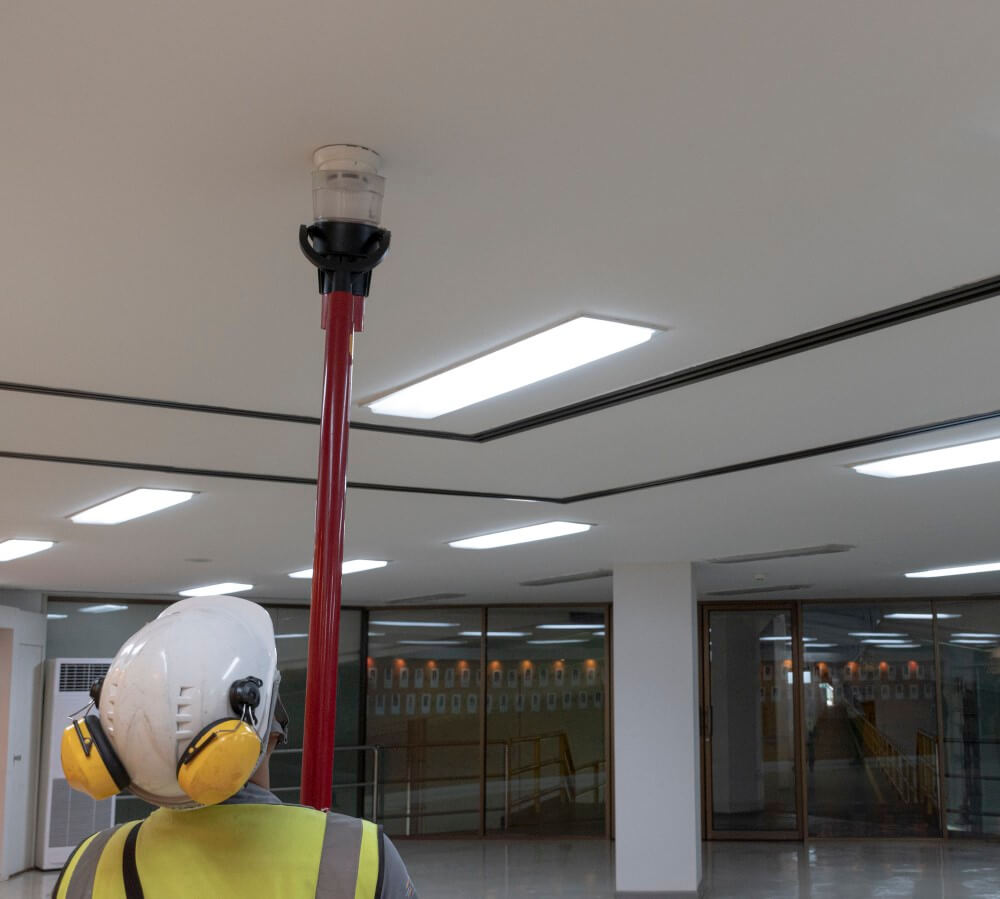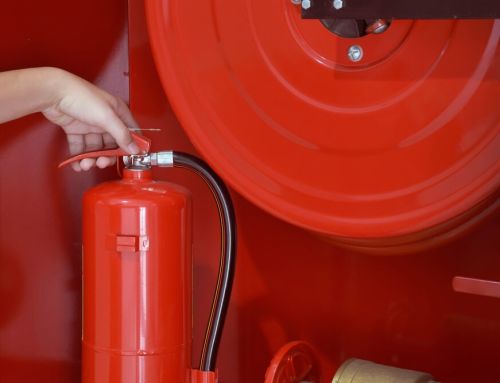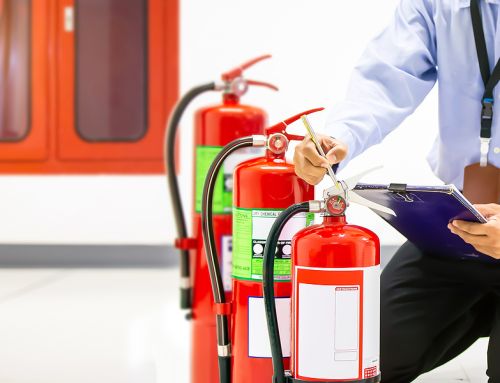
If you’re wondering whether you need a fire safety certificate in the UK, understanding the legal requirements is essential. Governed by the Regulatory Reform (Fire Safety) Order 2005, the responsibility for ensuring compliance falls on the designated responsible person. This includes conducting fire risk assessments and implementing safety measures to reduce risks. Non-compliance can result in hefty fines or imprisonment. Discover who is required to obtain a fire safety certificate and what steps are necessary to ensure your property is compliant.
Key Takeaways
- A Fire Safety Certificate is mandatory for all non-domestic premises in the UK.
- Private homeowners are exempt from needing a Fire Safety Certificate.
- Responsible persons in commercial settings must ensure compliance under the Regulatory Reform (Fire Safety) Order 2005.
- Landlords need to perform fire risk assessments in common areas of residential buildings.
- Non-compliance can lead to legal penalties, including fines and imprisonment.
What Is a Fire Safety Certificate in the UK?
A Fire Safety Certificate in the UK is an essential document that verifies a building’s adherence to fire safety regulations as stipulated by law. It is a critical component of ensuring fire safety compliance within various premises, serving as a formal attestation that the building’s design, construction, and fire safety provisions meet the required standards.
This certificate is typically issued following a thorough fire safety inspection, wherein authorities evaluate the premises against a stringent set of criteria. These inspections are designed to assess aspects such as the adequacy of fire exits, the integrity of fire-resistant materials, and the effectiveness of fire detection and suppression systems.
A successful inspection results in the issuance of the fire safety certificate UK, signifying that the building is sufficiently equipped to protect occupants in the event of a fire.
Furthermore, the fire risk assessment certificate, which is part of the broader fire safety certification process, specifically addresses the potential risks present in the building and the measures in place to mitigate these risks.
Obtaining this certificate is imperative not just for legal compliance but also for ensuring the safety and well-being of all building occupants and users.
Who Is Legally Required to Have a Fire Safety Certificate?
Business owners and property managers across the UK must secure a Fire Safety Certificate to demonstrate compliance with the Regulatory Reform (Fire Safety) Order 2005. This legal requirement is pivotal in ensuring the safety of premises used for business, commercial, or public activities.
Specifically, this encompasses educational institutions, healthcare facilities, retail establishments, and entertainment venues, among others. The certificate is mandatory for all non-domestic premises, except for private residences unless they are used for business purposes or are open to the public.
The obligation to obtain this certificate lies primarily with the responsible person—a designated individual who could be the owner, employer, or any person having control of the premises, such as a facility manager. This person is tasked with ensuring that all fire safety regulations are met, which includes conducting or arranging a comprehensive fire risk assessment, implementing appropriate fire safety measures, and maintaining fire fighting and detection equipment.
Failure to possess a valid Fire Safety Certificate not only jeopardizes the safety of occupants but also exposes the responsible person to significant legal penalties including fines and potential imprisonment.
Hence, compliance with these stringent regulations is not just a legal duty but a critical component of risk management and safety assurance in any business operation.
Fire Safety Certificate Requirements for Landlords
Landlords must adhere strictly to specific fire safety regulations to obtain a Fire Safety Certificate, essential for ensuring tenant safety and legal compliance.
The Regulatory Reform (Fire Safety) Order 2005 mandates that landlords carry out a thorough fire risk assessment in all common areas of residential buildings. This evaluation must identify potential fire hazards, evaluate the risks to residents, and detail measures to minimize or eliminate these risks.
The assessment must be conducted by a competent person, often a professional fire safety consultant, who can adequately foresee potential fire scenarios and recommend appropriate fire safety measures.
It is crucial for landlords to maintain updated records of these assessments, any actions taken, and improvements made. Additionally, fire detection and alarm systems must be installed and regularly maintained to ensure they are in working order.
Landlords are also required to provide clear fire safety information and instructions to their tenants. This includes the location of exits, operation of fire safety systems, and evacuation procedures in the event of a fire.
Failure to comply with these regulations can result in significant penalties, including fines and imprisonment, underscoring the importance of diligence in these matters.
Do Businesses and Commercial Properties Need One?
While the focus on residential fire safety is paramount, similar obligations also apply to businesses and commercial properties under UK law. The Regulatory Reform (Fire Safety) Order 2005 mandates that all commercial premises in England and Wales, including offices, shops, hotels, and factories, must conduct a thorough fire risk assessment. This assessment must be periodically reviewed and updated to ensure compliance with safety regulations.
The responsibility for fulfilling these legal requirements rests firmly with the ‘responsible person’—a designated individual who could be the employer, owner, landlord, or occupier of the premises. The primary objective of this role is to safeguard everyone present in the building from fire hazards. This includes implementing and maintaining effective fire prevention measures, ensuring proper fire safety equipment is available and functional, and providing clear fire safety instructions to all occupants.
Failure to comply with these regulations can lead to severe penalties, including fines and imprisonment. Moreover, the absence of a valid fire safety risk assessment and failure to adhere to safety measures can invalidate insurance policies, leading to further financial repercussions in the event of a fire.
Thus, adherence to fire safety laws is not only a legal obligation but a fundamental aspect of risk management for any business.
Is a Fire Safety Certificate Needed for Private Homes?
In contrast to business and commercial properties, private homes in the UK are not required to obtain a fire safety certificate. This exemption reflects the differing regulatory environments governing private residential spaces as opposed to public or commercial buildings.
However, homeowners are still governed by various safety laws and regulations, intended to ensure a basic level of protection against fire hazards. The Regulatory Reform (Fire Safety) Order 2005, which stipulates the need for fire safety measures in commercial premises, does not extend to private dwellings.

Key aspects of fire safety in private homes include:
- Smoke Alarms: Installation of smoke alarms on every storey of the home.
- Fire Escape Plans: Developing and practising a clear fire escape plan.
- Safe Electrical Systems: Ensuring that all electrical installations and appliances are safe and regularly maintained.
- Building Materials: Utilize fire-resistant building materials during construction and renovations.
- Regular Assessments: Conducting periodic checks of all potential fire sources, such as heating systems and stoves.
- While the absence of a formal certification requirement simplifies the regulatory burden on homeowners, the responsibility for maintaining fire safety standards remains critical.
How to Get a Fire Safety Certificate in the UK
- A Fire Safety Certificate is mandatory for all non-domestic premises in the UK.
- Private homeowners are exempt from needing a Fire Safety Certificate.
- Responsible persons in commercial settings must ensure compliance under the Regulatory Reform (Fire Safety) Order 2005.
- Landlords need to perform fire risk assessments in common areas of residential buildings.
- Non-compliance can lead to legal penalties, including fines and imprisonment.
Fire Risk Assessment vs. Fire Safety Certificate – What’s the Difference?
- Understanding the distinction between a fire risk assessment and a fire safety certificate is crucial for compliance with UK fire safety regulations. Both are fundamental components in ensuring the safety of premises against fire hazards, but they serve different legal and practical purposes.
- Fire Risk Assessment (FRA): This is an ongoing process aimed at identifying fire risks and hazards in a building. It involves evaluating the potential risks to the people in the building and implementing measures to minimize or eliminate the risk.
- Fire Safety Certificate: This is a document that certifies a building’s fire safety systems meet specific safety standards. It is issued by the local fire authority or a licensed certifier after a thorough inspection of the premises.
- Legal Requirement: While every commercial building must have an up-to-date FRA under the Regulatory Reform (Fire Safety) Order 2005, a fire safety certificate is specifically required for newly constructed buildings or following significant alterations.
- Responsibility: The responsibility for conducting an FRA rests with the building’s ‘responsible person’, whereas obtaining a fire safety certificate is typically managed by the building developer or owner.
- Scope: An FRA covers management of all potential risks, while a fire safety certificate focuses on the building’s compliance with fire safety design and installations.
These distinctions help ensure that building managers and owners understand their obligations to maintain both the safety and legality of their property.
What Happens If You Don’t Have a Fire Safety Certificate?
Failure to obtain a fire safety certificate can result in significant legal consequences for building owners or developers in the UK. Under the Regulatory Reform (Fire Safety) Order 2005, the absence of this certificate, particularly in commercial buildings and multi-occupancy residences, exposes the responsible parties to potential prosecution.
Non-compliance not only signifies a breach of legal duty but also triggers enforcement actions from the local fire and rescue authorities. Enforcement can take multiple forms, ranging from informal notices requesting compliance to more severe penalties including fines and court-imposed sanctions. In extreme cases, persistent non-compliance can lead to imprisonment.
Beyond legal repercussions, lacking a fire safety certificate severely compromises insurance claims. Insurers may reduce or deny coverage for damages incurred in a fire incident if it emerges that the fire safety regulations were not duly followed.
Moreover, the reputational damage for businesses found in violation of fire safety regulations can be substantial. This can affect business operations, leading to loss of consumer trust and potentially severe financial downturns.
Thus, adherence to fire safety norms and obtaining the requisite certificates is not merely a regulatory formality but a fundamental aspect of operational security and business continuity.
Frequently Asked Questions
Can a Fire Safety Certificate Expire or Need Renewal?
Yes, a fire safety certificate can expire and require renewal. The validity period depends on local regulations, and renewal processes ensure continued compliance with updated safety standards and regulations to mitigate risks effectively.
What Are the Penalties for Falsifying a Fire Safety Certificate?
Falsifying a fire safety certificate in the UK is a criminal offense that can result in severe penalties, including fines and imprisonment, reflecting the serious nature of compromising building safety and public welfare.
Does Changing Property Usage Affect Fire Safety Certificate Validity?
Changing the usage of a property can invalidate an existing fire safety certificate, necessitating a new assessment to ensure compliance with current fire safety regulations tailored to the property’s new functional requirements.
About the Author: LandlordCertificate
Related Posts
Get Social
Recent Posts
- Asbestos Management Survey London: Update Your Property Records
- Gas Safety Certificate London: Why Regular Checks Save Money Long-Term
- FRA London Explained: How a Professional Fire Risk Assessment Keeps You Compliant and Safe
- When a New Tenancy Requires Your EICR Certificate London Renewal
- Fire Safety Certificate London: Integrating Fire Alarms and Emergency Lighting













